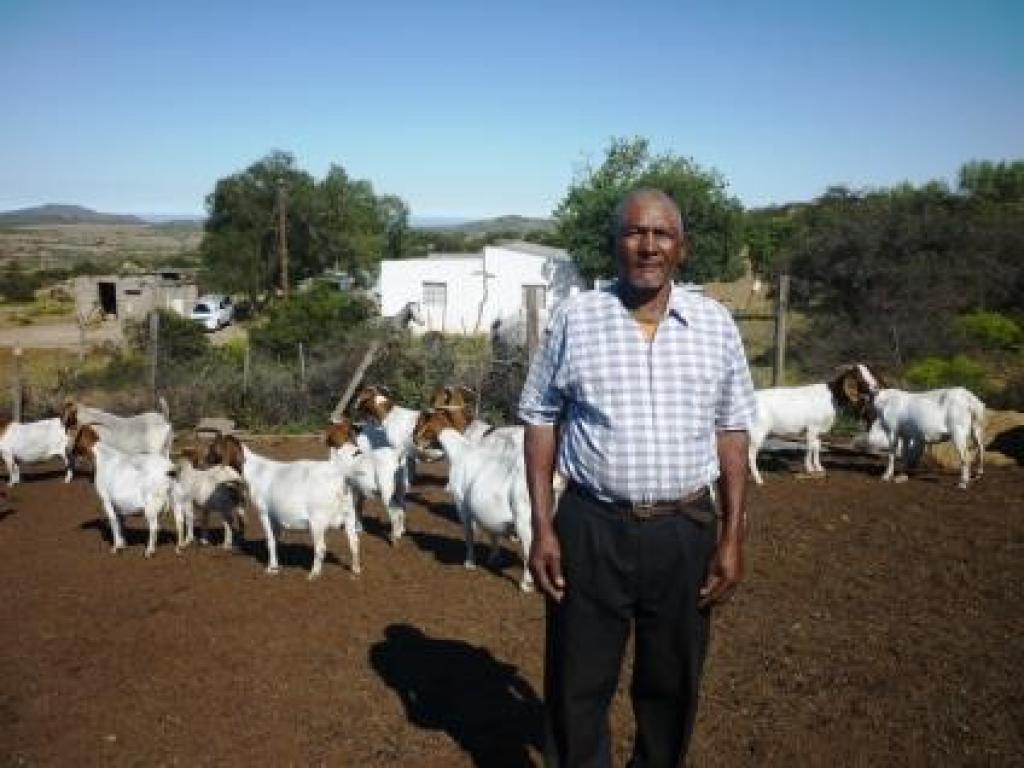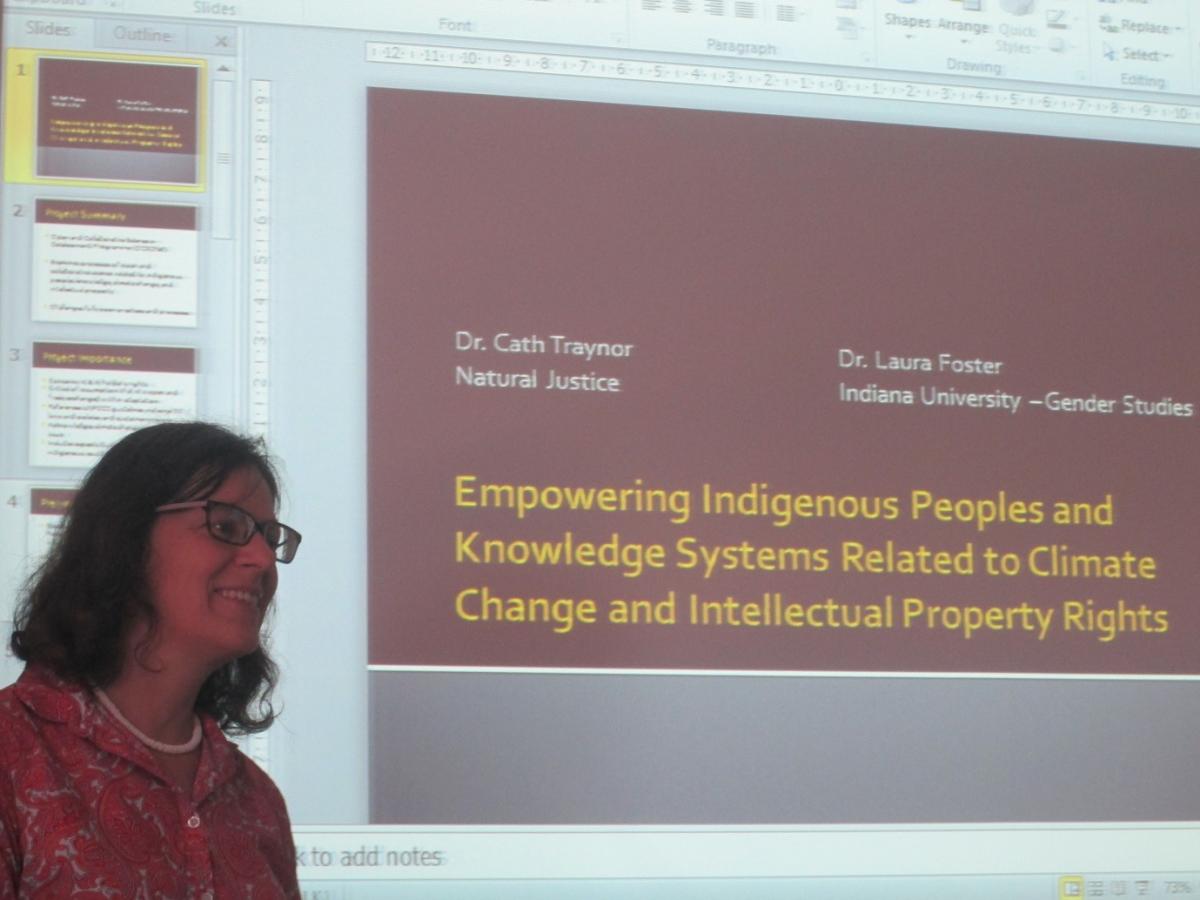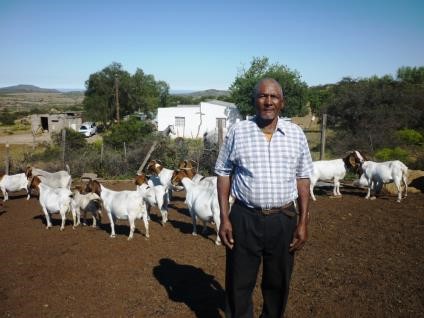Are we recognising indigenous knowledge rights in climate change research?

By Bellinda Monyela
ACDI Master's student 2016
The relationship between indigenous people and the environment in which they live is a very intimate one and as such these people are the most vulnerable in terms of climate change effects. They can offer valuable knowledge of surviving long periods of environmental changes, and successful and unsuccessful adaptation strategies to cope with these changes that are significant in addressing the climate change issues.
However, due to having an unheard political voice and in some cases, human rights violations - indigenous people are often not legally recognised. Consequently, their knowledge regarding climate change can be exploited by academic researchers without the indigenous communities being financially and academically acknowledged. This exploitation often results due to power inequalities between the academics and indigenous people through scientific colonialism.
The African Climate and Development Initiative(ACDI) hosted a seminar on the 3rd of March 2016, to open a platform to discuss open and collaborative science in relation to indigenous people’s knowledge (IPK) and Intellectual Property (IP) rights. The seminar was run by Dr Cathy Traynor (Natural Justice) and Dr Laura Foster (Indiana University, Bloomington), who together introduced the two-year project that aims to “Empower Indigenous Peoples and Knowledge system related to Climate and Intellectual Property rights”. The project is facilitated by the Open and Science in Development Network (OCSDNet) in collaboration with the University of Cape Town, Indiana University and the National Khoisan Council of South Africa.

Above: Dr Cathy Traynor (Natural Justice) presenting. Picture credit: Bellinda Monyela
What is the project about?
The project offers legal empowerment of the indigenous communities, assessing how indigenous knowledge is produced and why it is not classified as intellectual property as well as how indigenous knowledge is openly shared (or not) with the public. It also develops a Participation Action Research (PAR) assessment for a translational interdisciplinary research team. It highlights the importance of inspecting the roles that national indigenous laws, policies and customary laws can play to encourage/prevent open collaboration with the public. The project further emphasises how the decisions made in the indigenous communities in relation to climate change can offer guidelines for the communities to be represented at the United Framework Conventions on Climate Change (UNFCCC). Lastly, the project includes a capacity building element for indigenous youth and advocacy so that through conducting research, youth can be equipped with necessary skills to improve and protect their communities against the scientific/academic colonisation.

Above: pastoralist from Vredendal- Griqua nation. Picture credit: Cath Traynor and Laura Foster
Project Setting
The project is conducted by two indigenous communities of South Africa. The Griqua nation, which is situated in the town called Vredendal in the northern Olifants River Valley and the Nama nation, which is situated next to the Richtersveld National Park in the Northern Cape. These two nations are among the earliest inhabitants of South Africa, and their population size ranges from 10- 30 thousand. The two groups’ livelihoods revolve around pastoralism and other activities such as mining. The grievances of the communities mostly concern the loss of land and calls for recognition of indigenous people by the South African government.
Methodology
The project will be designing a research methodology that flows from the two nations’ interest in relation to climate change through PAR. These will be done by mapping out actors (academic, indigenous experts, traditional healers, youth, government etc.) and opening a platform to discuss their individual understanding of climate change. Secondly, there will be an exploration of the indigenous knowledge on climate change. However, should people not be familiar with the phenomenon, it won’t be forced on them. Thirdly, the relationship between the researchers and communities should be governed by drawing up of expectations from both sides. Finally, the research will ensure that there is protection (legal) of the indigenous knowledge through community contracts to conduct the research. The research institutions should also commit to maintaining transparency and accountability, by ensuring that there are no breaches of contracts. These procedures will be facilitated by institutional ethic procedures, information sheets and full proposal and interview questions.
What is yet to be investigated
Due to the time frame, financial constraints and scope of the project, there hasn’t been an exploration of the impacts of climate change on the Nama and Griqua group. Secondly, indigenous knowledge in relation to climate change and coping mechanism used through successive environmental changes hasn’t been documented. Lastly, the project wasn’t able to reflect on the continuity of the indigenous knowledge and the dangers of sharing the indigenous knowledge with no consent from the two nations.
A project like this is important because it takes the “bottom –up” approach of the PAR by establishing a partnership with indigenous communities to identify important key issues. The project also calls for a reconceptualization of climate change, intellectual property and indigenous knowledge, so that they can be better understood in relation to each other in an interdisciplinary way as structured by the economic, socio-cultural and political histories of the Khoisan people. You can read more about the project here.
Disclaimer: The views expressed here are solely those of the author in her private capacity and do not in any way represent the views of the ACDI, or any other entity affiliated with the ACDI.